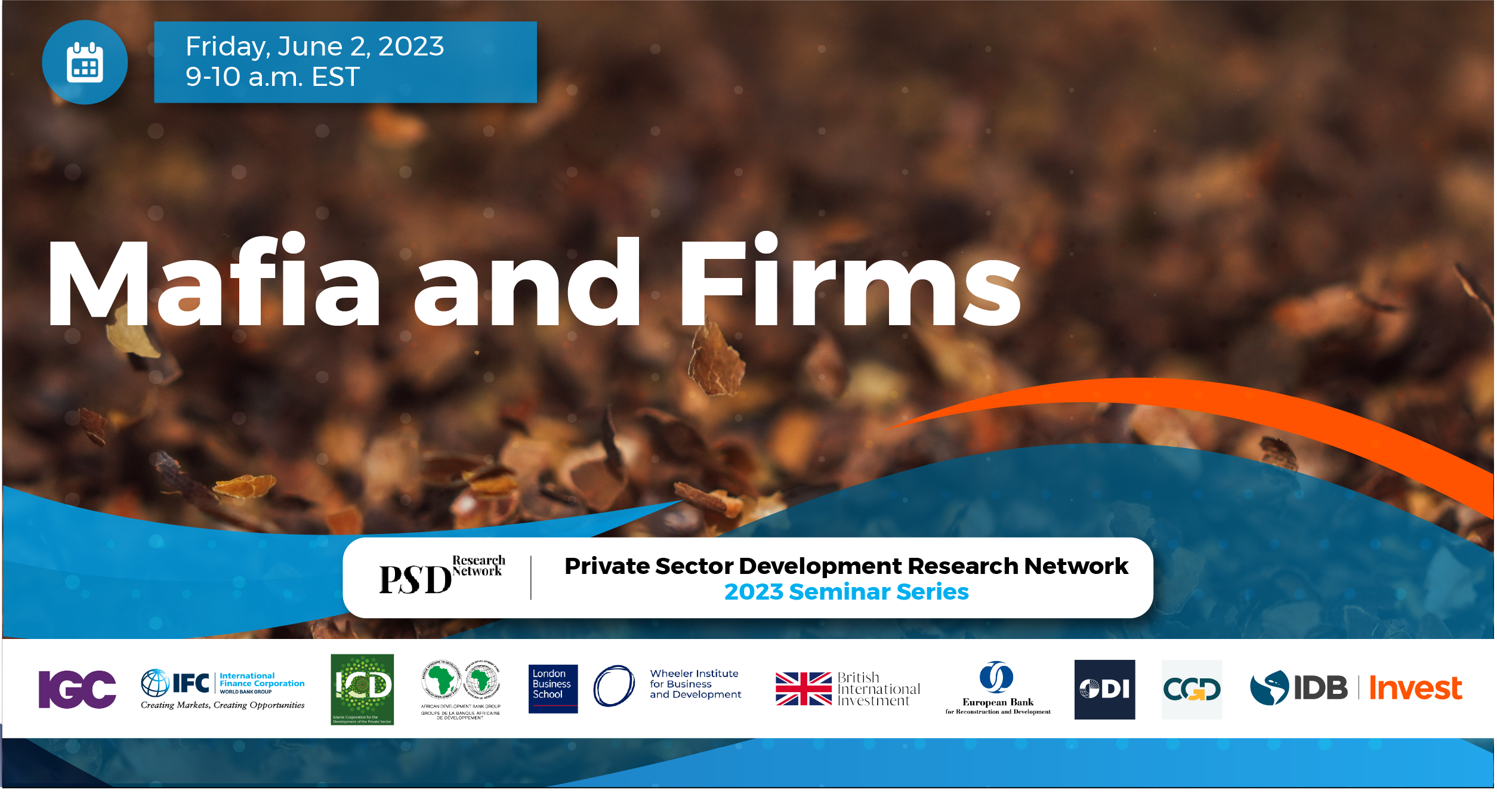
Mafia and Firms
Organized by the Private Sector Development Research Network
Friday, 2nd of June 2023 from 9-10am EST
ABOUT THE SEMINAR
Organized crime groups (OCGs) regularly invest in legal economic activities around the world. Estimating the effects of such infiltrations on firm-level outcomes is crucial to understand why OCGs invest in legal firms, the spillover effects and distortions associated with such investments, and to design better policy responses. Yet evidence remains scarce due to a dearth of micro-data. In the paper that will be presented during this seminar, the authors make three contributions. The first contribution is to put forward a parsimonious conceptual framework that distinguishes two modes of investments of OCGs in legal firms: in the contaminated investment, the OCG directly connects the operation of the legal firm to illegal activities; in the pure investment, instead, the illegal activities and the legal firm’s operations remain separate. The assumption that contaminated investment allows the OCG to leverage its criminal capabilities at the cost of a higher likelihood of detection delivers a rich set of predictions that the authors test – and confirm – in the data. Their second contribution is to leverage the Mappatura – a new dataset assembled by the Financial Intelligence Unit of the Bank of Italy that matches reports of suspicious financial transactions with highly confidential investigative and judicial records on OCGs’ activities in Italy. Their third contribution is to distinguish between firms that are born infiltrated by OCGs from firms that are born clean and are subsequently infiltrated. In contrast to previous work, the authors find that OCGs infiltration has zero effects on firm operational outcomes (revenues, employment, wages, and input costs). These results point to criminal organizations using legal firms as a way primarily to “invest” in safe assets rather than to “compete” through corruption and extortion or to use legal firms to support illegal activities. Policy implications of these findings – which are in contrast to the existing literature – will be discussed.
ABOUT THE SPEAKER
Rocco Macchiavello
Associate Professor of Management (LSE)
Dr. Rocco Macchiavello holds a PhD in Economics from LSE, where he is currently an Associate Professor in Management. Previously, Dr. Macchiavello has been a Post-Doctoral Fellow at Nuffield College (Oxford University), Harvard Kennedy School, and a Professor of Economics at Warwick University. Dr. Macchiavello acts as Lead Academic for the IGC – Myanmar Country Program and is a research affiliate with BREAD, CEPR, JPAL and IPA and a co-editor of Journal of Law, Economics and Organization.
His research interests lie at the intersection of development, organizational and industrial economics. His research covers several topics (relational contracts, vertical integration, supply chain, lending models, risk management, management and productivity), countries (Bangladesh, Chile, Costa Rica, Colombia, Ethiopia, India, Kenya, Myanmar, Pakistan and Rwanda), and sectors (coffee, flowers, dairy and garments). For his research, he has collaborated with numerous government agencies, international organizations, social enterprises and large companies. His current research focuses on sourcing practices and sustainable sourcing in supply chains, market structure, conduct and collusion in agricultural markets and in weakly institutionalized environments, and organized crime.
More details on his work can be found here.





